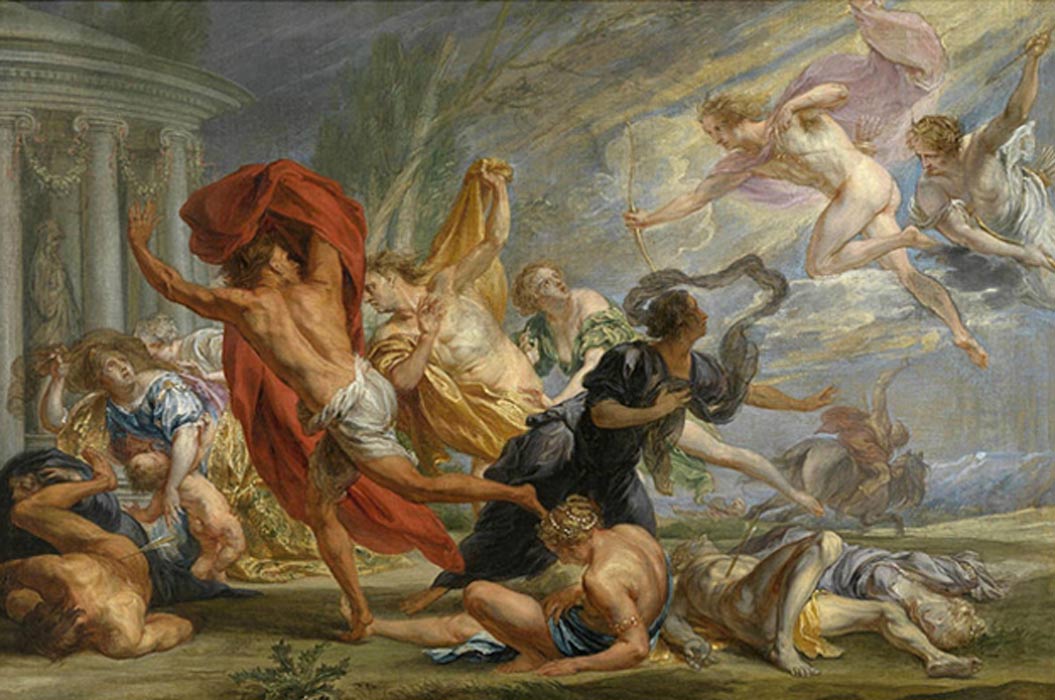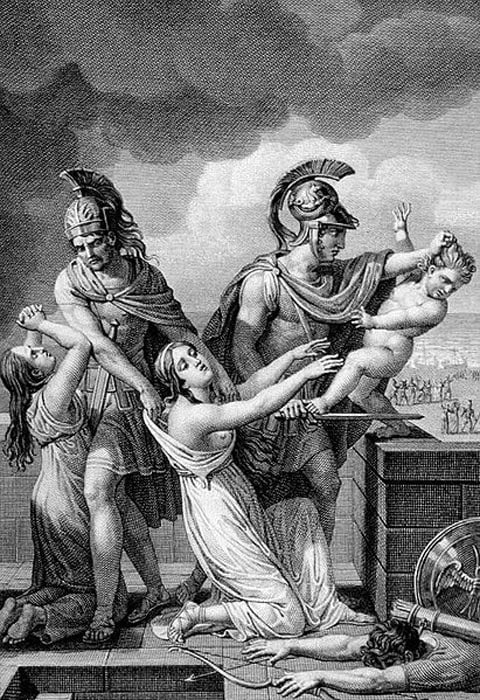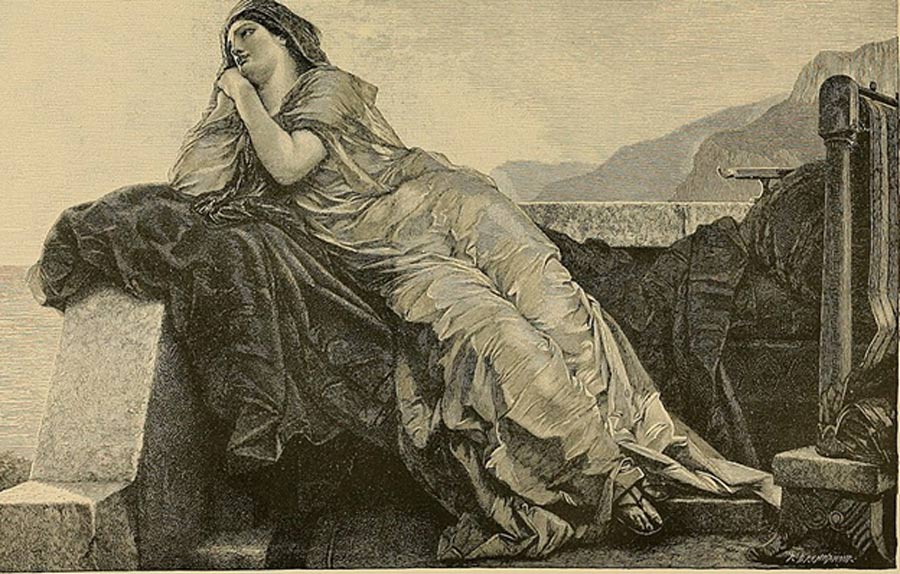
Messengers of Misery: Mourning Women in Mythology
Women's laughter may have been considered as a sign that the empire was doing well, however in mythology women lamenting and crying were often harbingers of misery, madness and mourning. In the works of the classical Sanskrit writer Kalidasa (circa 4th - 5th century AD) we see descriptions of women being invited to the king’s garden to sing, dance, play and laugh. Indeed, legend has it that the laughter of women would make the trees burst into flowers. The sound of women’s laughter was captured on temple walls and borders of Buddhist stupas, creating a ring of positive energy and keeping out the negative. On the other hand, women’s tears made people uncomfortable and often willing to do just about anything to stop the tears flowing.

Trojan Princess Andromache pleading for the life of her infant son Astianax. (Public Domain)
Ancient mythology recognizes the power of women’s tears and rarely depict women as crying only for their own sake. The Iliad resonates with the cries of Trojan women for a father, brother, or son fallen in combat or lost and the Odyssey is punctuated by the tears of Penelope who is crying for her husband. As women’s laughter signals that everything is well in a society, crying women signals that something is wrong, even signaling danger ahead.

Penelope pining for Odysseus by Rudolf Friedrich von Deutsch (1888) (Public Domain)
The power of women’s tears did not stop there. In Ancient Rome, women and their tears were certainly important at funerals, as in supplicationes (propitiatory offerings to the gods). In these ceremonies, Roman women would tearfully plead with the gods to obtain their good divine graces or to thank them after military victories.
Tears of Tragedy
In Greek mythology, Niobe’s father was Tantalus, king of a town above Mount Sipylus in Anatolia. Niobe was the wife of Amphion, king of Thebes, and gave him seven sons and seven daughters. One day, at a ceremony held in honor of Leto, the mother of the divine twins Apollo and Artemis, Niobe said in a fit of arrogance that she was superior to Leto, as she had 14 children and not only two.
This insult toward their mother enraged Apollo and Artemis. They came at once to earth to kill the children of Niobe. Apollo killed all seven of Niobe's sons with his powerful arrows in front of the pleading Niobe herself, wiping out all of Niobe’s male descendants while Artemis killed Niobe's seven daughters. Devastated by the slaughter of his children, Amphion committed suicide. Thus, Niobe's entire family had been wiped out by the gods in a matter of moments.
- Identity Crises of the Sirens: Wise Women, Murderesses or Singing Prostitutes?
- The Secret Life of Melusine: Mysterious Mermaid & Serpent Mother of European Nobility
- Tracing the Steps of the Apostle Paul Through First Century Corinth





